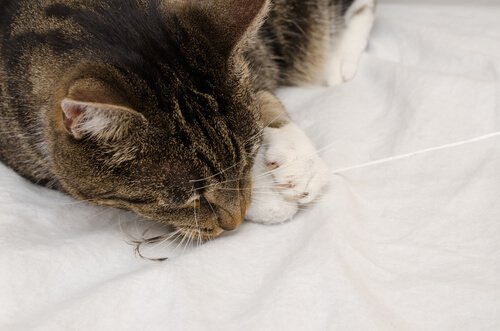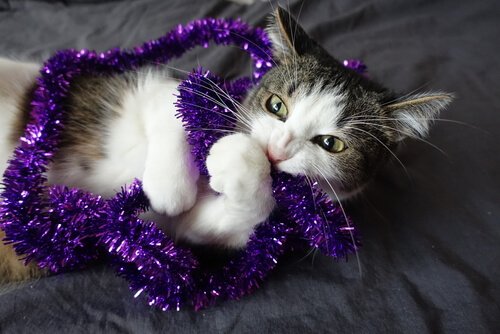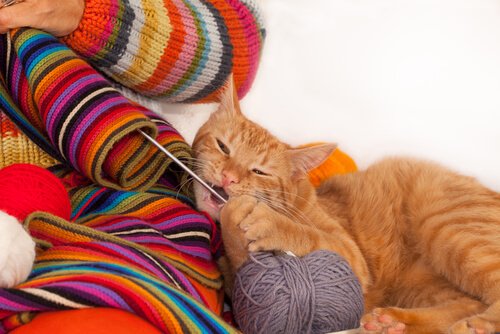Why Do Cats Chew on Their Owner's Clothes?

You might think cats chew on your clothes because they’re destructive and don’t like something about them. But there’s actually a different explanation for this. In this article we’re going to tell you why, and it’ll help you understand your pets a little better.
Why do cats chew on clothes?
Felines are complicated creatures to understand (dogs are usually simpler), and it’s difficult to know why they act certain ways. If you’ve noticed your cat chews on clothes, sheets, or mattresses, it might have something to do with their personality.
Cats love their “personal” belongings, and can be unwilling to share them with others, whether people or animals. They turn so possessive that they start licking and chewing on their belongings.
It doesn’t matter what these things are made out of, cats will chew on cardboard, leather, wood, rubber, plastic, or whatever else they feel like chewing on. The problem is when everything starts to revolve around that.
Chewing on something like a sheet can become an obsession, and that’s not good for their health. Chewing and swallowing certain materials might cause them to choke. They could also have troubles digesting those materials and not be able to expel them.

It’s not “bad” for a cat to chew on objects — what matters is how often they’re doing it. If your cat become more unfriendly than usual by hissing, arching his back, and refusing to give up his “treasure,” there might be a deeper problem worth looking into.
Reasons cats chew on clothes
There’s more than one reason that might cause your cat to act this way. That’s why it’s so important to analyze his habits and figure out why he is chewing on certain fabrics.
1. Genetics
Some breeds, like Birmans and Siamese Cats, are more likely to chew on wool than other breeds. Genes play a key role in this behavior, and there’s not much you can do about it besides making sure the behavior doesn’t become unhealthy.
2. Weaning
Some cats, for whatever reason, are weaned too early. These cats have a tendency to suck or lick fabric and sheets. The object they choose is like a stand-in for the time when they weren’t breastfed. This usually goes away on its own, but you should be concerned if they keep on doing it.
3. Stress
When a big change takes place at home — a new baby, new pet, an owner’s death, moving, a trip, etc. — some cats get stressed out, and they’ll show it in different ways. Some turn aggressive, others don’t stop eating from several days, and then there are the ones that chew on clothes to relive their stress.

4. Boredom
If your cat spends a lot of time home alone with no toys or anyone to play with, it might start to lick or chew on its objects. This also happens if it doesn’t exercise or play enough, or if it doesn’t have enough mental and physical stimuli.
It’s more common in cats that live in apartments and can’t go outside. However, they can still play games or do fun activities. Go ahead and buy your cat a toy so he has something to play with while you’re at work.
5. Disease
It’s probably happening to your cat, but sometimes cats have behavioral changes due to leukemia or other serious diseases, like brain tumors. If your cat is compulsively chewing on clothes, it might be good idea to take him to the vet.
6. Malnutrition
This doesn’t always mean your cat doesn’t have enough food. Cats also need specific nutrients that the food you’re feeding him might not have. You’ll notice this if it stops chewing on clothes and starts to eat dirt, plants or lick stones.
7. Territoriality
Finally, don’t forget that cats are territorial creatures. If a cat chews on your clothes, it’s probably his way to show you that it belongs to him. It’s no different from scratching a couch or going to the bathroom in certain areas of the house.